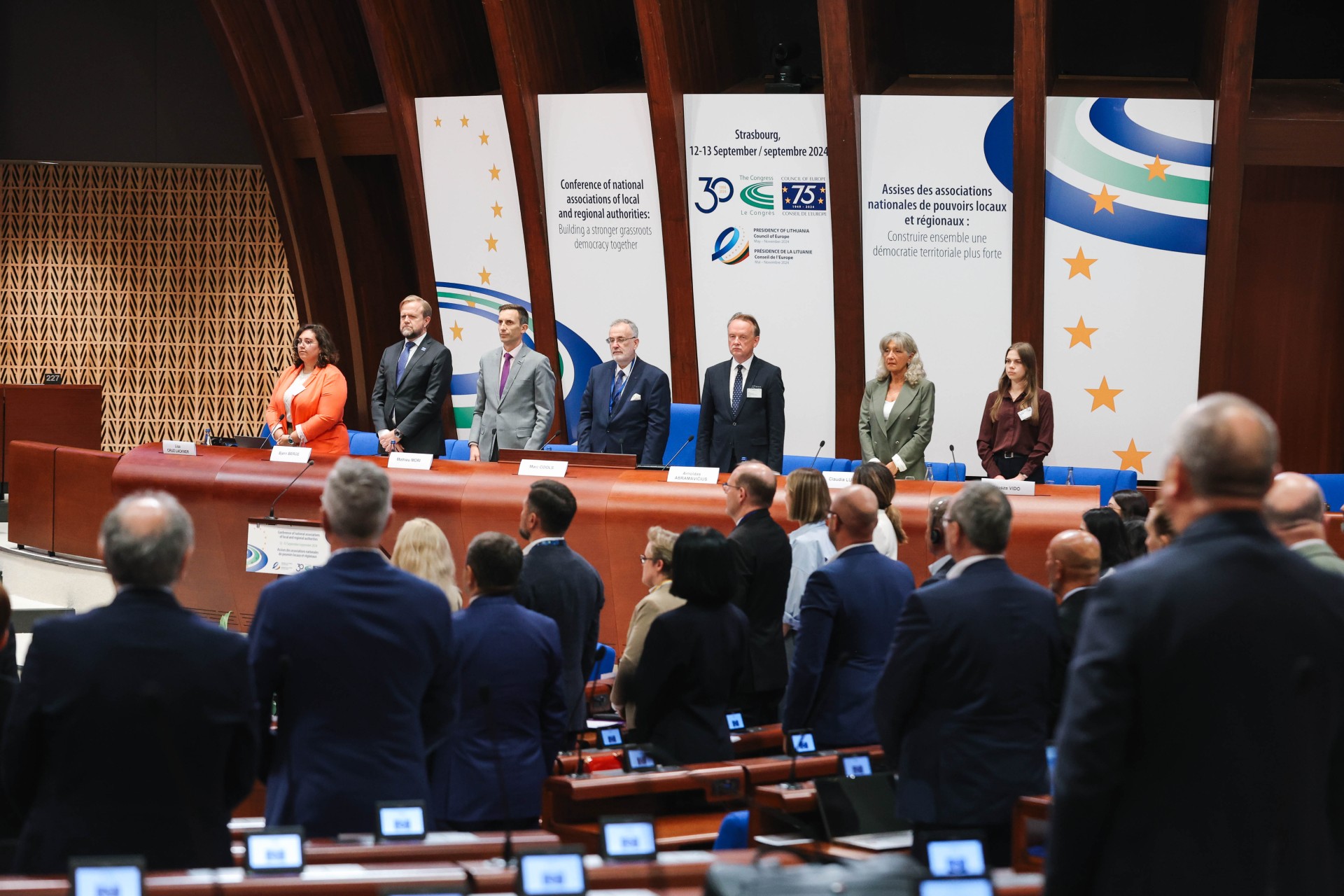Politics
EU Extends Sanctions on Nicaragua, Calls for Restoration of Fundamental Freedoms

The European Council has once again extended its restrictive measures against Nicaragua for an additional year, maintaining the sanctions until October 15, 2025. This decision reflects the EU’s ongoing concern over the deteriorating political and social conditions in Nicaragua, emphasizing the urgent need for democratic reforms and respect for human rights.
Currently, the restrictive measures target 21 individuals and three entities, enforcing an asset freeze and prohibiting EU citizens and companies from providing funds to those listed. Moreover, the sanctions impose a travel ban on these individuals, preventing them from entering or passing through EU territories.
The sanctions regime was initially enacted in October 2019, as the EU sought to address the escalating crisis in Nicaragua. The Council has repeatedly highlighted serious issues, including the erosion of human rights, democracy, and the rule of law in the country. These measures are reassessed annually, ensuring that the EU’s response remains relevant and effective.
The European Union remains steadfast in its call for Nicaragua to restore fundamental freedoms, release all remaining political prisoners, and permit the return of international human rights organizations. The EU urges an end to the ongoing restrictions on civic space and insists on the right to dissent being respected.
Reaffirming its commitment to the Nicaraguan people, the EU emphasizes the importance of defending democracy, the rule of law, and human rights. The political crisis plaguing Nicaragua demands a resolution through sincere dialogue between the government and opposition forces, a solution the EU firmly advocates.
As Nicaragua faces continued international scrutiny, the EU’s measures represent a strong message: genuine reform and respect for fundamental freedoms are imperative to advancing the nation’s democratic and social stability.
Politics
OSCE Workshop Enhances Inter-Agency Collaboration for Youth Crime Prevention in Kyrgyzstan

Issyk-Kul, Kyrgyzstan – 7 October 2024 – From October 1 to 3, the OSCE’s Transnational Threats Department, in collaboration with the Office of the Co-ordinator of OSCE Economic and Environmental Activities, hosted a significant multi-stakeholder workshop in Issyk-Kul, Kyrgyzstan, aimed at bolstering inter-agency cooperation on youth crime prevention. This initiative brought together 30 representatives from law enforcement and social services, including key participants from the Ministry of Interior and the Ministry of Labor and Social Protection.
The workshop’s central focus was on fostering effective collaboration among different agencies to ensure at-risk youth, regardless of gender, are deterred from criminal pathways. Through a series of interactive sessions, attendees were encouraged to identify, assess, and prioritize real-life cases of youth crime, while collaboratively developing strategies to address the underlying causes of criminal behavior.
“Youth crime prevention is a priority for Kyrgyzstan,” commented Nurzhan Adylova, Head of the Department of the Public Security Service within the Ministry of Interior. “This workshop was an effective platform for us to explore ways to improve cooperation between law enforcement, schools, and social workers, aiming to promote a culture of lawful behavior from an early age.”
The workshop represents a pivotal component of the OSCE-wide multi-year extra-budgetary project titled “Enhancing Youth Crime and Drug Use Prevention through Education on Legality and Awareness Campaigns Addressing Threats of Organized Crime and Corruption.” This project has received primary funding from Germany, along with additional support from countries including Andorra, Finland, Italy, Norway, and Poland.
By fostering collaboration and developing shared strategies, the workshop aimed to establish a more cohesive approach to preventing youth crime in Kyrgyzstan. The engagement of various stakeholders underscores a commitment to tackling the root causes of youth criminality, ultimately seeking to empower young people through education and support systems, while instilling a strong sense of community responsibility.
As the workshop concluded, participants left with renewed commitments to work together, sharing insights and strategies that can pave the way for a safer environment for youth in Kyrgyzstan. The focus on early prevention and inter-agency cooperation is expected to play a crucial role in steering at-risk individuals away from crime, fostering a brighter future for the nation’s youth.
Politics
Stop the race to the bottom: LEFT MEPs lead the charge for fair working conditions

On 1 October, over 1,000 essential workers from nine EU countries will rally in front of the European Parliament in Brussels, calling for urgent reforms to the EU’s public procurement rules. The Left stands in solidarity with these workers, advocating for stronger collective bargaining rights, improved working conditions, and public contracts that prioritise quality services over corporate profits.
Left MEP Li Andersson (Vasemmistoliitto, Finland), Chair of the Committee on Employment and Social affairs in the European Parliament:
“Competitiveness threatens to turn into a race to the bottom in terms of workers’ rights. Therefore we need better public procurement rules and strong emphasis on social criteria. We must ensure good, healthy and safe jobs for the people in Europe. When using public money, we must set an example – as we must have policies that strengthen the European Social Pillar, it’s also our responsibility to promote collective bargaining.”
Across Europe, millions of workers rely on public contracts for their livelihoods. Yet, research from UNI Europa exposes a troubling reality: half of public tenders in the EU are awarded solely based on the lowest price, disregarding the social impact on workers and communities. This practice flies in the face of the European Commission’s commitment to improving job quality and expanding collective bargaining to secure fair wages and better working conditions for all workers.
As European Commission President Ursula von der Leyen gears up to revise the EU Public Procurement Directive, essential workers are making their voices heard, especially after the glaring omission of a portfolio dedicated to quality jobs and social rights.
This is a pivotal moment – a chance to finally address the needs of the very people who make these services possible.
The Left unequivocally opposes this broken system of public procurement that puts corporate greed ahead of workers’ livelihoods. Europe must no longer be driven by deregulation and profit-hungry corporations; instead, it should be shaped by robust public investment, the protection of workers’ rights, and an unwavering commitment to social and environmental justice.
Politics
Local and regional authorities play a crucial role in building resilient democratic societies: conference hosted by Council of Europe Congress

The role of local and regional authorities in effectively responding to the challenges facing European democracies, in supporting Ukraine, protecting human rights, saving the environment, and enabling young people’s involvement is the focus of a conference of associations of local and regional authorities from the Council of Europe’s 46 member states, that started on 12 September.
The conference was opened by Marc Cools, President of the Congress of Local and Regional Authorities; Arnoldas Abramavičius, Vice-Minister of Interior, on behalf of the Lithuanian Presidency of the Committee of Ministers; Bjørn Berge, Deputy Secretary General of the Council of Europe; and Congress Youth Delegate from Andorra Lisa Cruz Lackner.
Ekrem Imamoglu, Mayor of Istanbul and President of the Union of Turkish Municipalities, and Gunn Marit Helgesen, President of the Norwegian Association of Local and Regional Authorities and President of the Council of European Municipalities and Regions, opened the debate on the role of national associations in strengthening territorial democracy.
“Resilience, reconstruction and reform of Ukraine”, “Boosting democracy by engaging all citizens” and “Local innovation for stronger local authorities” are the themes of the round tables to be held as part of the conference.
On 13 September, the event participants adopted a joint declaration to reaffirm the commitment to the Council of Europe’s values and standards.
The event, which was streamed online, coincided with the Council of Europe’s 75th anniversary and the 30th anniversary of the Congress, and is held under the auspices of the Lithuanian Presidency of the Committee of Ministers.
-
EU & the World5 days ago
Sean ‘Diddy’ Combs’ Net Worth: How Much Money He’s Worth Now
-

 Sports7 days ago
Sports7 days agoChampions League 2024-2025: Liverpool-Bologna, the likely lineups
-

 EU & the World6 days ago
EU & the World6 days agoDoes Diddy Have a Girlfriend Now? Update Amid Sean Combs’ Sex Trafficking Case
-

 Sports6 days ago
Sports6 days agoMotoGP, Jorge Martin believes in the world title
-

 EU & the World5 days ago
EU & the World5 days agoHarold Daggett: Meet the Union Leader in Charge of the Port Workers Strike
-

 Sports6 days ago
Sports6 days agoBarcolana56: Allianz reconfirms partnership with Anemos II
-

 EU & the World5 days ago
EU & the World5 days agoWho Is Jane Roe? What to Know About the Makeup Artist in Garth Brooks’ Lawsuit
-

 EU & the World5 days ago
EU & the World5 days agoSandy Mahl: 5 Things to Know About Garth Brooks’ Ex-Wife








